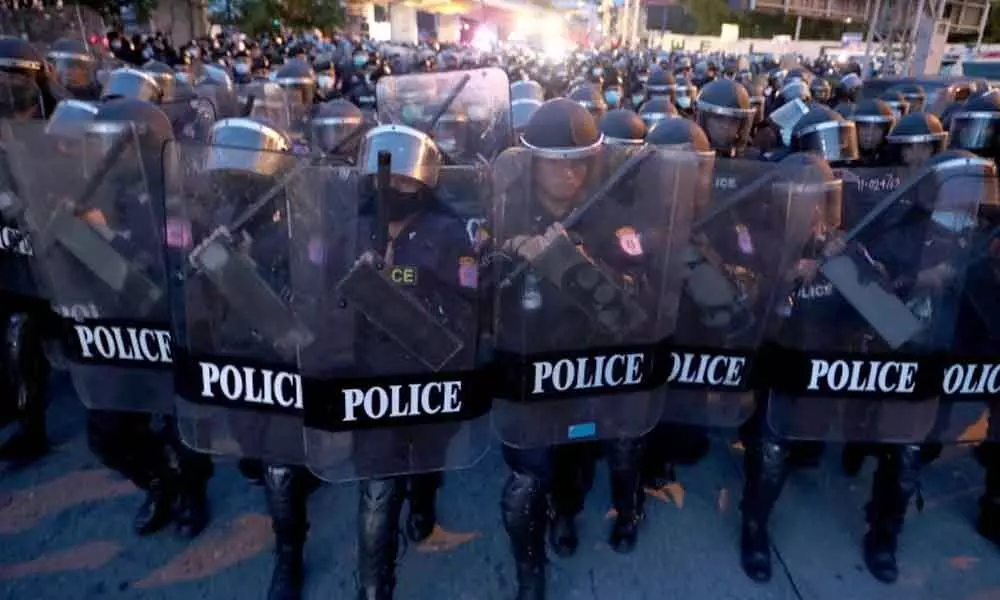Thai protesters hold a mirror to the world

Thai protesters hold a mirror to the world
Tens of thousands of Thai protesters cheered and chanted into the night in central Bangkok on Thursday in a show of mass defiance to a ban on demonstrations designed to end more than three months of anti-government action.
Tens of thousands of Thai protesters cheered and chanted into the night in central Bangkok on Thursday in a show of mass defiance to a ban on demonstrations designed to end more than three months of anti-government action. Thai Prime Minister, Prayuth Chan-ocha, said on Friday he was not quitting and warned the demonstrators of consequences. The protests were not only against the Prime Minister but also are targeting King Maha Vajiralongkorn.
A former junta leader, Chan-ocha, is facing the biggest challenge for years to an establishment long dominated by the army and palace. The crowds are not scared. What is unheard of is the fact that the protesters called out insults against the king. Thailand is a country whose Constitution tells its people that the King has to be worshipped. The establishment tried to underplay the protests claiming that only 10,000 protesters were present despite the presence of huge crowds far exceeding the number.
The protests had been peaceful till October 14 when the police pushed back jeering protesters away from the motorcade of the Queen Suthida. This led to an overnight ban on political gatherings of five or more and the publication of news and online information as it would be a threat to the nation (like several countries that do so unfailingly). Cases are piling up on protesters leaders with even sedition charges applied. Thailand has the largest wealth gap in the world, according to Credit Suisse.
The Global Wealth Report and Databook showed that the richest 1 per cent in Thailand now control almost 67 per cent of the country's wealth. Actors across the political spectrum, from the liberal "red shirts" to the junta-backed Palang Pracharat Party and the private sector agree that wealth inequality is a threat to Thailand's social stability. According to the Credit Suisse report, the bottom 10 per cent of Thais hold 0 per cent of the country's wealth, being either in debt or having no documented household income. The poorest 50 per cent of Thais now hold only 1.7 per cent of the country's wealth, while the richest 10 per cent now hold a massive 85.7 per cent.
Since the 1950s, Thailand has seen rapid economic growth that has lifted segments of the population out of poverty but provided disproportionate benefits to a wealthy few. Part of this is because while Thailand's gross domestic product (GDP) per capita tripled between 1980 and 1995, spending on social services remained stagnant, limiting social mobility and preventing lower classes from taking advantage of the growth. Public spending on education remained at 2-3 per cent of the GDP during this growth period.
The growing costs of higher education made it inaccessible to the lower classes, denying them a route to higher-paying jobs. In the 1960s, 85 per cent of Thais were farmers (a lower-income occupation for most) but 15.5 per cent of these families were sending their children to university. By comparison, in the mid-1980s, the percentage of farmers sending their children to university had dropped to 8.8 per cent. Covid-19 could only have worsened the situation.
Why do governments refuse to listen to the people? People, worldwide, are seeking answerable rulers. Social media is only helping their cause. They are learning from other countries too. It's time governments sit up take notice of peoples' aspirations.










